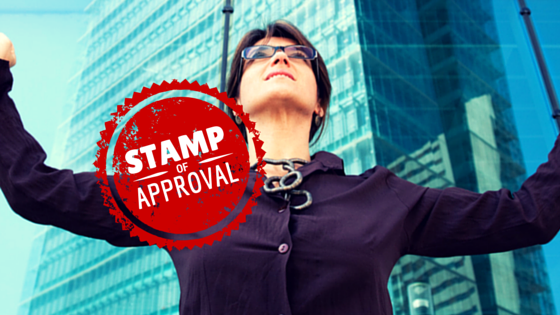Ask people what they feel is the most important leadership quality and you'll get as many answers as you've asked people. There's so many relevant traits to leadership that it's near impossible to list them.
Of course there're the obvious ones. One leadership quality that pops up in many Top-Tens is 'Having the courage to follow your own path'; taking the direction you feel is important to your company or team, even when others don't stand with you on that (yet).
I support that. It truly is important to be able to make autonomous decisions. AND I believe there is a highly relevant leadership quality that actually is the foundation for this autonomy, without being recognized as such.
That leadership quality is Self-Validation.
What is Self-Validation?
Self-Validation doesn't have an entry in the dictionaries I consulted, but from the definition of to validate, it's easy enough to derive one:
Merriam-Webster defines to validate as:
I a : to make legally valid : ratify
b : to grant official sanction to by marking
II a : to support or corroborate on a sound or authoritative basis
For what I am explaining here, the last one, 'to recognize the worthiness or legitimacy of [something or someone]' is the most powerful one, and working with this, the definition of Self-Validation becomes:
'to recognize one's own worthiness and legitimacy'.
Why is Self-Validation important to leadership?
We all need validation; we need to feel worthy and legitimate. Many of us search for validation in other people. We try to be liked, fit in and be approved off.
For leaders that is quite problematic, because typical leadership traits like following your own path call for autonomous choices.
And autonomy doesn't combine well with needing to be liked.
Leaders are vulnerable when they have to seek validation and appreciation from other people. It will be a constant struggle on a very personal level, withdrawing attention from their actual goals and really relevant challenges.
Self-Validation is the foundation of many of the more visual qualities people attribute to powerful leadership, allowing leaders who have self-validation to be bolder and go further.
I would even go as far as to say that without a healthy amount of Self-Validation, no-one can be a truly great leader.
How to develop Self-Validation
Accepting and appreciating who you really are isn't simply a button you switch on. It's often a challenging process of working through issues you picked up over time.
And because they didn't emerge overnight, they can't be solved overnight.
But they can be solved.
And you are the one to solve them.
So if you truly want to be a better leader, your first focus should be to work through the things that prevent you from really appreciating and validating yourself.
A while ago I decided to develop a Self-Love Challenge to help develop my self-esteem and yes: my self-validation. I wrote about my reasons to do that in this article, btw. The 30 Day Self Love Challenge can be an excellent starting point to grow your self-validation (it's free).
Now I would love to hear your opinion about Self-Validation as the unexpected leadership quality all great leaders share. Please add your opinion in the comments below.

